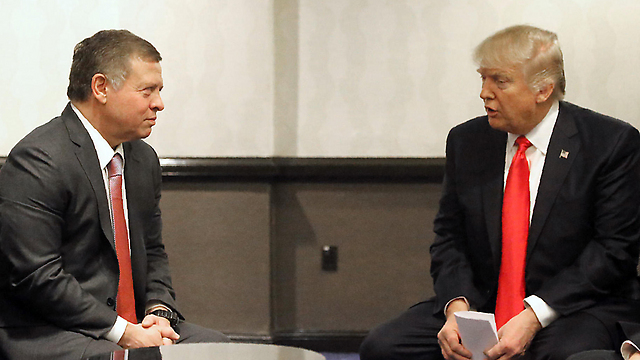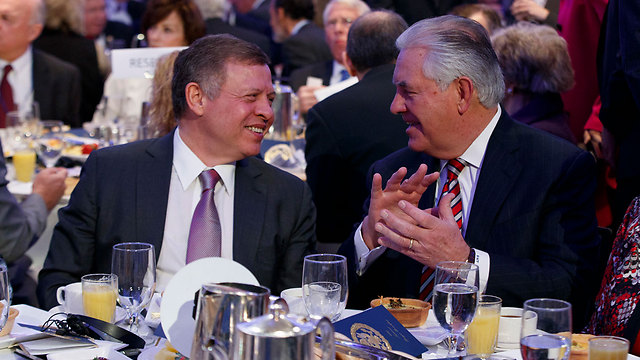
Jordan’s King Abdullah was the first Arab leader to meet with the new president earlier this month when both attended the National Prayer Breakfast.
The Palestinians, in contrast, have struggled to make connections with the Trump Administration. Senior Palestinian official Saeb Erekat told media outlets that the president had rebuffed overtures from Abbas repeatedly, although security officials did meet the Palestinian security chief Majed Faraj last week.
The lack of close ties between the Palestinian Authority and Washington makes Jordan nervous as well. About three-quarters of Jordan’s population are Palestinians, while many of the Palestinians who live on the West Bank hold Jordanian citizenship. Jordan has historically played an important role in the Muslim holy sites in Jerusalem, which have been a flashpoint of Israeli-Palestinian violence in the past.
Many in Arab states were angry when then-candidate Donald Trump announced that one of his first acts as president would be to move the US Embassy from Tel Aviv to Jerusalem. For Palestinians, that means an effective end to any chance of a two-state solution, as they say that east Jerusalem must be the capital of a future Palestinian state.
Days later, Netanyahu announced that almost 6,000 new homes will be built in the West Bank and east Jerusalem, another move that Palestinians say takes aim at a future independent Palestinian state. On both of these issues, analysts say, Jordan stepped in to argue the Palestinian case.
“I met the King a few days ago and he said he spoke with US officials about the consequences of moving the US embassy (to Jerusalem), and the damaging role of enlarging the settlements,” Oraib al-Rantawi, the director of the Al-Quds Center in Amman, told The Media Line. “The King told the president that these moves could put an end to a viable Palestinian state, which would also affect Jordan’s stability and security."
The King is also keen for the US to help establish safe zones on the border between Jordan and Syria, which would keep more Syrian refugees from entering Jordan.
“This is of high importance to Jordan,” Mohammed Hussainy, the director of the Identity Center, an independent civil society organization in Amman, told The Media Line. “If the Trump administration decides to go ahead with this, they will find cooperation from Jordan, especially for a safe zone in the south of Syria.”
Jordan currently has about 1.4 million Syrian refugees and the country simply cannot handle anymore, analysts say. It would be even better if some of those refugees could eventually return to Syria.
Jordan is also interested in helping the US step up the fight against Islamic State, analysts say. Jordan is suffering economically partly because its borders with Syria and Iraq have been closed due to the fighting.
“We are trapped in this crisis,” Al-Rantawi said. “We hope to open the borders and conclude deals with Syria and Lebanon and through them with Europe.”
Jordan has long had close ties with the US, under both Democratic and Republican presidents. Analysts say that Jordan can play an important role in coordinating with the US on war against terrorism.
Article written by Linda Gradstein.
Reprinted with permission from The Media Line.


















